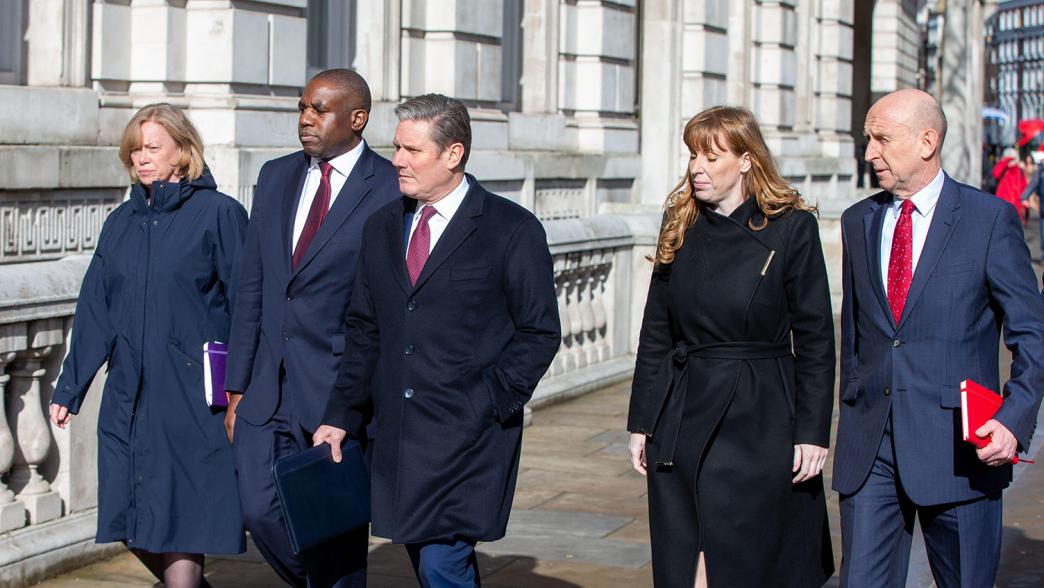How the civil service prepares for a general election
This explainer considers the preparation the civil service undertakes during an election period.

How does the civil service prepare for a general election?
Preparation undertaken by the civil service falls largely into three main categories:
- Access talks with opposition parties to begin understanding the policies and people that could come into government.
- Work anticipating the likely policies of opposition and governing parties, and what the objectives of each department might be under a different government, including by studying the manifestoes of each party.
- Writing briefs for potential incoming ministers about departmental activity and other significant issues that any new ministers will have to deal with on taking office.
Before the Labour victory in 1997, the Department for Education and Employment used information from meetings between the then permanent secretary Michael Bichard and the then shadow secretary of state David Blunkett to guide its preparatory work for Labour’s Literacy Strategy and prepare itself for the first ever blind minister.
When does the civil service start preparing for a general election?
Any preparation that the civil service undertakes for a potential change in government has to be balanced against its priority to serve the government that is currently in office.
Most preparation work will occur during the election campaign. However, in the past departments have started preparations far in advance of an expected election date. Before the 2010 election, limited numbers of civil servants began thinking about the election and a potential transition of government 18 months in advance, but the majority took place in the last six months before the election.
The 2017 and 2019 snap elections meant that civil service preparation time was necessarily short. The date for the next election is not yet set, but the prime minister has indicated it will be in the second half of 2024.
How do the roles of ministers and their civil servants change during an election period?
During an election campaign period, ministers are expected to separate their roles as a government minister and a party campaigner. Government resources cannot be used for election purposes – including speech-writing support, events organisation and factual briefings prepared by the civil service. The rules also state that government activity must be restricted during that period. The Ministerial Code states: ‘Ministers continue in office and it is customary for them to observe discretion in initiating any action of a continuing or long-term character’.
Civil servants continue to support the government during the campaign, under far stricter rules than usual, in what used to be called a ‘purdah’ period. No new appointments, contracts or major policy areas can be announced, and are customarily postponed until after the election. Civil servants also begin to prepare for new ministers in their departments, drawing up briefings and other induction materials.
How is preparation coordinated across the civil service?
At around the time parliament dissolves, the Cabinet Office releases guidance relating to the conduct of each general election. It also acts as the primary coordinator between the opposition leadership and the civil service on access talks. The Cabinet Office and cabinet secretary will prepare for an incoming prime minister and produce a briefing pack for them. The Cabinet Office also prepares for an unclear election result and any multi-party negotiations – as well as other constitutional issues that might arise from the election result.
What do civil servants prepare for a new minister on their first day?
Departments prepare briefing documents for new ministers. This can be a useful way for departments to take stock of their policies and organisation, and consider how they might need to change. However, not all ministers find these documents useful – or even find time to read them. Nick Macpherson, former Treasury permanent secretary, told us how around 300 pages of briefings were prepared for Gordon Brown when he became Chancellor in 1997, but he suspects that Brown read virtually none of them. 4 Preparing for Power podcast - Episode 2, www.instituteforgovernment.org.uk/podcast/inside-briefing/preparing-power-episode-2-civil-service
Others felt it could be more useful. Jacqui Smith, former home secretary, said in her Ministers Reflect interview that some departments provided a ‘well worked through… education process that enables you both through written material and through meetings to get an idea of the sort of policy areas that you’re covering’. Lord Dunlop, a minister in the Scotland Office, felt that ‘the civil service does a great job in looking at various scenarios as to what’s going to happen in the election and preparing briefs for the incoming minister’.
The ‘Day One’ planning for new ministers also includes thinking about how best to introduce the minister to departmental staff, discussing how their office will work and even making sure that logos, posters and name-badges associated with the previous government are removed.
- Topic
- Civil service
- Political party
- Labour
- Position
- Leader of the opposition
- Department
- Cabinet Office
- Publisher
- Institute for Government